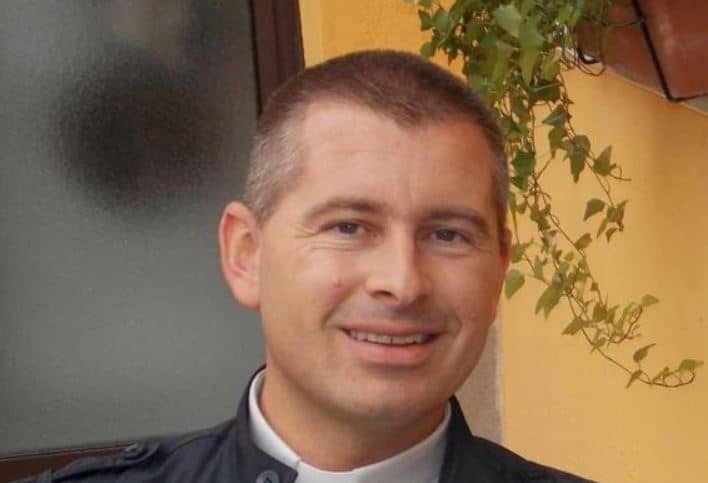ROME – On Tuesday, the bishops of Belarus announced that after a nearly 3-month exile over his criticism of Belarusian leaders, Archbishop Tadeusz Kondrusiewicz of Minsk will be allowed to return to his archdiocese for Christmas thanks to a personal plea from Pope Francis.
In a Dec. 22 statement, the Vatican’s envoy to Belarus, Archbishop Ante Jozic, said he received news from the competent state authorities “that Archbishop Tadeusz Kondrusiewicz has no obstacles to return to the territory of the Republic of Belarus.”
“The Apostolic Nunciature expresses its gratitude to the State Authorities of the Republic of Belarus for responding positively to Pope Francis’s request to return Archbishop Tadeusz Kondrusiewicz to celebrate the Nativity of the Lord with the faithful of which he is pastor,” Jozic said.
Kondrusiewicz, 74, found himself barred from reentering Belarus on Aug. 31 after a brief trip to Poland after his criticisms of Belarusian President Alexander Lukashenko and his handling of pro-democracy protests in a disputed election in early August.
Since then, Kondrusiewicz has been residing in Poland while the Vatican have attempted to negotiate his return.
Archbishop Paul Gallagher, Vatican Secretary for Relations with States — equivalent to the role of foreign minister — traveled to Belarus Sept. 11-14 in an attempt to smooth things over, however, at the time, Gallagher said he wasn’t optimistic Kondrusiewicz would return.
On Dec. 22, Belarusian Foreign Minister Vladimir Makei revealed that Archbishop Claudio Gugerotti, the apostolic nuncio to Great Britain, had met with Lukashenko Dec. 17, bringing with him a personal letter from Pope Francis containing an appeal for Kondrusiewicz to return for Christmas liturgies.
Makei told reporters that the letter Gugerotti handed to Lukashenko contained “a request related to a well-known personality, Metropolitan of Minsk and Mogilev Archbishop Tadeusz Kondrusiewicz.”
“Out of deepest respect for the pope and because of good personal relations, the Belarusian head of state considered it possible to meet the pope’s request and gave an instruction to find a solution to the issue, taking into account all available legal mechanisms,” Makei said, adding that Christmas festivities were “an additional reason” to allow Kondrusiewicz’s return, “despite a number of negative things about this person.”
Insisting on the good relations enjoyed between Belarus and the Holy See, Makei said this relationship is based on trust.
Both states “always discuss all cooperation-related issues in an open and candid way,” he said, adding, “we closely cooperate with the Vatican within the framework of various international organizations. We support each other virtually across all areas of international, regional and bilateral agenda.”
“I believe that it is very important that the Belarusian head of state and the head of the Vatican, Pope Francis, maintain very close, friendly, personal contacts,” Makei said, saying Lukashenko “looks up to Pope Francis and admires his activities.”
“Similarly, Pope Francis treats Belarus with love and affection. And, of course, he cares about Belarus, its prosperity and welfare,” he said.
With any obstacle to his return presumably removed for the time being, Kondrusiewicz will likely return to Minsk either Dec. 23 or 24 to preside over Christmas Masses and other seasonal festivities.
Kondrusiewisz will turn 75, the mandatory age when bishops submit their letters of resignation, Jan. 3, meaning he could be retired soon in a bid to circumvent further problems he might face with Belarusian authorities, or his mandate could be extended should the pope choose not to accept his retirement.
Follow Elise Ann Allen on Twitter: @eliseannallen















